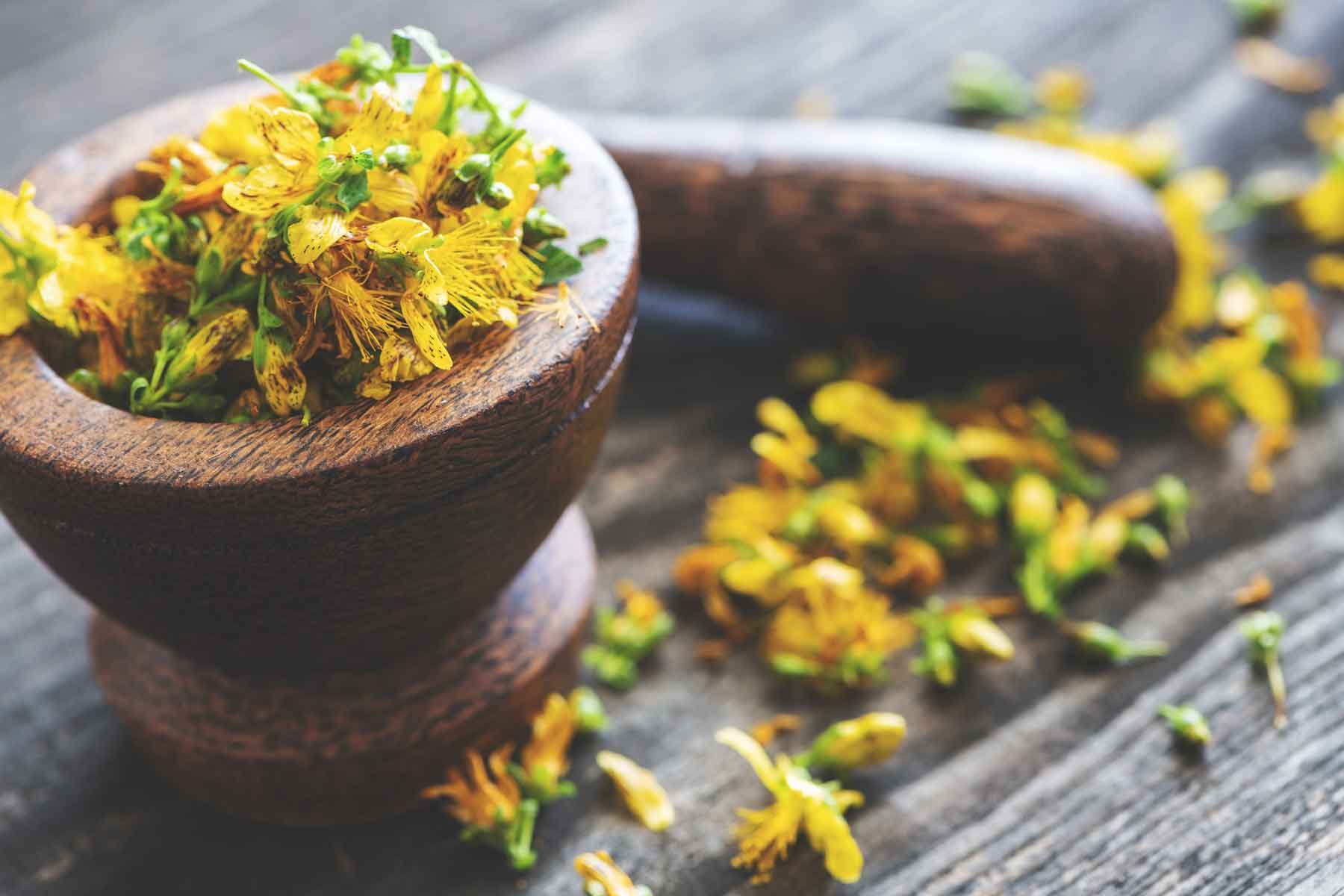St. John’s Wort: Nature’s Way to Keep Viruses at Bay
Our ancestors considered St. John’s Wort (Hypericum perforatum) to be a powerful talisman against evil—especially in its potency against physiological invaders like viruses, bacteria, and parasites. As a result, this yellow flowering herb has been valued for centuries and is one of the most studied botanicals in modern times as an effective remedy for a variety of ailments and diseases.1,2,3
Known for its antiviral, antibacterial and anti-inflammatory properties, St. John’s Wort assists the body and mind with numerous afflictions.
Common Medicinal Uses May Include:
- Pain Relief
- Muscle aches
- Depression and anxiety
- Seasonal Affective Disorder
- PMS and menopause
- Wound healing
- Insomnia
- Protecting the liver
- Supporting nervous system
- Boosting Immunity
Its antiviral capacity is where Dr. Zelenko found most value in including this herb as an essential component to his Z-Shield™ formulation—a powerful blend specifically formulated to detoxify the body of common latent or inactive viruses like influenza, herpes, and Epstein Barr Virus.4,5
Epstein Barr Virus: A Latent Virus
Epstein Barr Virus (EBV) is a herpes virus that infects close to 90% of people around the world and is spread primarily through saliva and other bodily fluids. Once infected, EBV may persist in the body for life if steps are not taken to eliminate it. However, the majority of individuals are completely unaware they carry the virus because it tends to remain latent with no symptoms. That is, until it becomes triggered and activated.
An EBV infection targets key immune cells in the body that can become activated through triggers like stress or a weakened immune system. Being proactive in support of a healthy lifestyle is an excellent way to prevent a latent EBV infection from becoming symptomatic and inducing disease.6
Once activated, EBV may manifest in a variety of ways that can last from weeks to months.7
Common symptoms may include:
- Fever
- Rash
- Sore Throat
- Fatigue
- Swollen Lymph Nodes
- Enlarged Liver and Spleen
- Depression
- Muscle aches and pains
Epstein Barr Virus may increase the risk of:
- Hashimoto’s thyroiditis
- Infectious Mononucleosis
- Multiple Sclerosis
St. John’s Wort: Addressing the Threat
Since Epstein Barr Virus is a latent virus that may display no symptoms, strengthening the immune system and detoxifying the body becomes key to resisting viral activation and onset of disease. Existing research has shown that the bioactive component hypericin found in St. John’s Wort plays an effective role in detoxifying the body of latent viruses like EBV infections by helping to prevent its activation and subsequent disease.8
St. John’s Wort can be prepared and taken as a tea, tinctured extract, or a powdered capsule. This herb is generally safe, but caution should be taken for those who are pregnant, breastfeeding, or taking certain medications like interferons and SSRI antidepressants.9 It is important to consult with a qualified healthcare provider before starting any new medication or supplement.
Z-Shield™ supplies a safe and effective dose of St. John’s Wort in combination with other premium all-natural ingredients including, vitamin D3, zinc, lemon balm, turmeric, N-acetylcysteine (NAC) and EGCG. Together this unique combo forms a potent blend to effectively detoxify the blood of latent viruses like EBV and bolster immune health. With a daily dose of St. John’s Wort provided through Z-Shield ™, you can help keep latent invaders like EBV at bay and support your overall health in a natural, gentle, and effective way.
Medical Disclaimer: The content in this article should not be taken as medical advice or used as a direct recommendation for any treatment or medication. Always consult with a properly licensed healthcare provider before making any changes to your current health and wellness routine.
References
References:
1. Lennihan, B. (2014). The Practical Herbal Medicine Handbook. Althea Press.
2. Culpepper, N. (2019). Culpepper’s Complete Herbal. Union Square & Co.
3. Alschuler, L., Clare, B., Hobbs, C., Romm, A., & Upton, R. (2010). Vaginal Infections and Sexually Transmitted Diseases. Botanical Medicine for Women's Health, 256-289. https://doi.org/10.1016/B978-0-443-07277-2.00010-6
4. Chen, H., & et al. (2019, October 29). Antiviral Activity Against Infectious Bronchitis Virus and Bioactive Components of Hypericum perfoatum L. Frontiers in Pharmacology, 10. https://www.frontiersin.org/articles/10.3389/fphar.2019.01272/full
5. Epstein-Barr Virus. (2022, July 13). Cleveland Clinic. Retrieved from: https://my.clevelandclinic.org/health/diseases/23469-epstein-barr-virus
6. Bilia, A. R., & Karioti, A. (2010). Hypericins as Potential Leads for New Therapeutics. International Journal of Molecular Science, 11(2): 562-594. Retrieved from: https://doi.org/10.3390/ijms11020562
7. Leggett, H. (2022, January 24). Study identifies how Epstein-Barr virus triggers multiple sclerosis. Stanford Medicine. Retrieved from: https://med.stanford.edu/news/all-news/2022/01/epstein-barr-virus-multiple-sclerosis.html
8. Hu, L., & et al. (2016, April 26). Filicinic Acid Based Meroterpenoids with Anti-Epstein-Barr Virus Activities from Hypericum japonicum. American Chemical Society, 18(9): 2272-2275. Retrieved from: https://pubs.acs.org/doi/abs/10.1021/acs.orglett.6b00906
9. Ahmad, M., & et al. (2008, February). Antiviral potentials of medicinal plants. Virus Research, 131(2): 111-120. Retrieved from: https://doi.org/10.1016/j.virusres.2007.09.008


Leave a comment